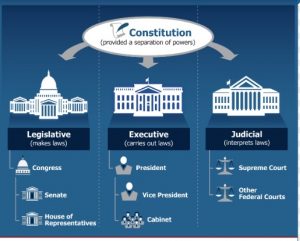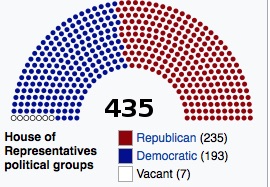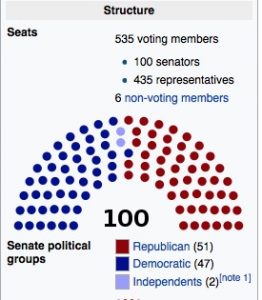
It’s all a bit reminiscent of the intellectual riot against the Electoral College in the wake of the 2016 election. For years, Democrats boasted of their Electoral College advantage. The vaunted “blue wall” consisted of 18 states where Democrats consistently won from 1992 to 2012, adding up to 242 of the 270 electoral votes needed to win.

It’s just that it’s not as democratic as critics would like, because states with very small populations get the same number of senators as states with very big populations. (This arrangement is what made ratification of the Constitution possible in the first place.)
Thus the Washington Post’s Phillip Bump writes that Kavanaugh was confirmed with support “from senators representing only 44.2 percent of the country.”
And New York Times columnist David Leonhardt argues that the Senate boils down to “affirmative action for white people” because overwhelmingly white states have representation in the Senate equal to larger, more diverse states such as California. (California has far greater representation in the House, of course.)
“The results,” Leonhardt writes, “are pretty outrageous.” The average black American has “only 75 percent as much representation as the average white American.” The average Asian American: 72 percent. The average Latino American: 55 percent.

This is a ludicrous way to think about it.
First, these voters certainly don’t care that much, or they’d move to places like Wyoming or Rhode Island to maximize their electoral power. Normal people don’t think like that. If you start from the proposition that every hue and ethnicity be perfectly represented in Congress, we’d have to get rid of states and congressional districts too.
As political consultant Luke Thompson notes, most of these statistical games are a result of the fact that California is huge and hugely Democratic. Take its near 40 million people out of the equation, and the Senate becomes pretty representative. Most of the other big states are swing states.
The Senate was created to represent the interests of states as sovereign entities in our republican order. To argue that the Senate is structured unfairly is to argue that states are a relic with no inherent value.
If California thinks its California-ness is special and worth preserving, it should suck it up and take one for the team. And if liberals really want a more democratic Senate, they should call for California to be sliced up into three or four states.




Jonah Goldberg? You’re reprinting articles from right-wing partisan hacks now? I don’t know who has gotten ahold of Jim but something has changed
Well, when someone writes what appears to me to be true, I do not allow previous impressions to cloud my judgment. I recommend you consider that even sources you distrust or don’t like may, from time to time, knock it out of the park. You cannot be objective if you allow bias to affect your objectivity.